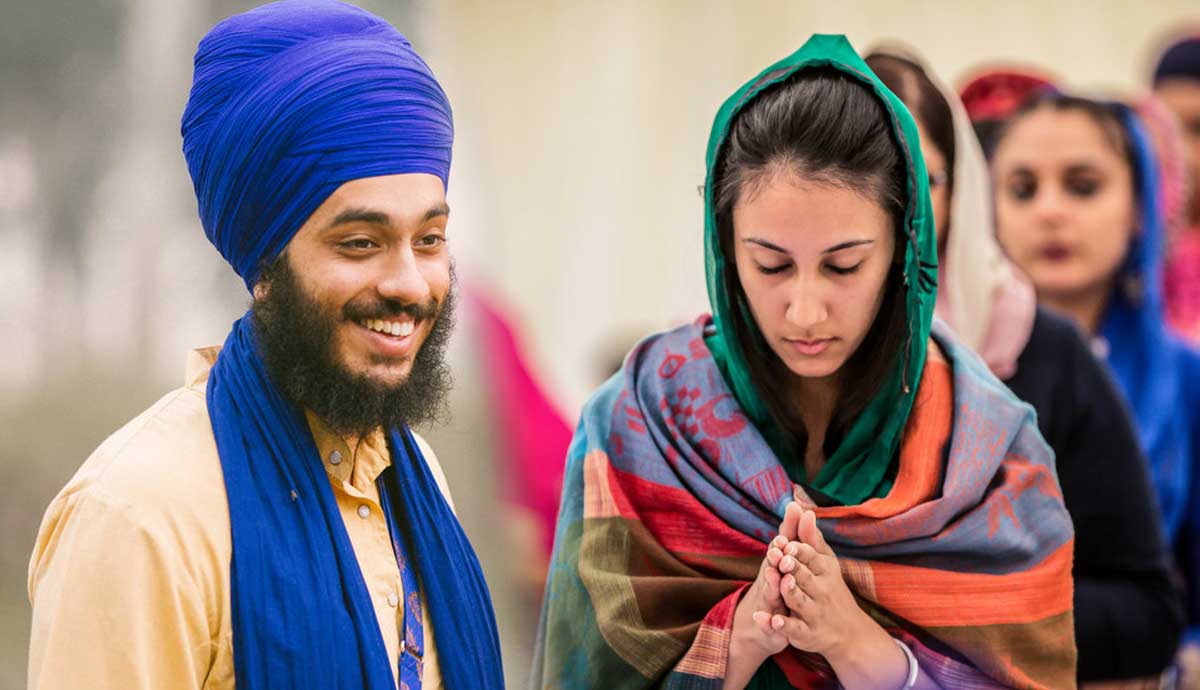Why Do Sikh Names Use “Singh” or “Kaur”?
Hi, everyone! Today I want to chat about an interesting topic—why many Sikhs have “Singh” or “Kaur” in their names. This question puzzled me for a long time until I recently found the answer. Next, I’ll explain it clearly in simple terms so everyone can easily understand.
Where Did My Curiosity Come From?
Last week, I took my son to a soccer game and noticed three men named “Singh” sitting on the sidelines. They were Singh Patel, Singh Sharma, and Singh Gupta. I couldn’t help but wonder: Why do all these men have “Singh” in their names? What about the women? What do their names look like?
With this question in mind, I started asking around.
Initial Exploration: Confusion
First, I asked my neighbor Raj, who is Sikh. He just shrugged and said, “It’s our tradition, like a surname.” This answer was too vague and didn’t solve my question at all.

So I decided to look it up online. I typed “Why do Sikh names use Singh?” into the search engine. A flood of results appeared, but they were all religious websites full of technical terms like “Gurdwara,” “Guru Gobind Singh,” and so on. These words seemed profound, but reading them felt like tackling a thick textbook—it gave me a headache.
Next, I headed to the library hoping for simpler materials. Unexpectedly, the books there were even more complex, filled with tales of wars, gurus, and historical contexts. After flipping through pages for ages, I still couldn’t grasp what made “Singh” and “Kaur” so special. It felt like everyone assumed you already understood the basics, while I was completely lost.
The “Aha!” Moment Finally Arrived
Just as I was about to give up, I met a barista at a coffee shop near the gym. As we chatted, I discovered her family was also Sikh. So I asked her straight out: “Why do Sikh names always have ‘Singh’ or ‘Kaur’?”
She laughed, set down the milk steamer, and said, “Actually, it’s much simpler than what those books say.”
She explained that it all traces back to a pivotal leader—Guru Gobind Singh. In 1699, he established a new order for Sikhs. Its core goal was to dismantle the deeply entrenched caste system in Indian society.
What is the Caste System?
In India, the caste system is an ancient social hierarchy. Your surname reveals your class—whether you’re a farmer, merchant, or noble. This system created deep divisions, with lower castes often facing discrimination.
Guru Gobind Singh’s Vision
To transform this reality, Guru Gobind Singh introduced a bold innovation: all baptized Sikh men must adopt “Singh” as part of their name, meaning “lion”; all baptized Sikh women must take “Kaur,” meaning ‘princess’ or “heir to the throne.”
Thus, regardless of birth, upon joining Sikhism, one’s name became “So-and-so Singh” or “So-and-so Kaur.” This not only obscured original caste labels but also rendered everyone completely equal on paper.
The Significance of This Tradition
Through this conversation, I finally grasped the meaning behind “Singh” and “Kaur.” They are more than names—they are a declaration. Every person who adopts these names declares: “I belong to this community that pursues fairness and equality.”
Even today, this tradition retains immense power. When you encounter a man named Singh or a woman named Kaur, you recognize they’ve chosen to transcend their family background, seeking true equality through faith and action.
An Example
Imagine someone born into poverty. Under the old caste system, they might have been labeled “inferior” for life. But now, by becoming a Sikh, their name becomes “So-and-so Singh,” and no one can judge them by their origins. Similarly, a wealthy woman can be called “So-and-so Kaur,” standing on equal footing with others.
This practice is remarkably clever, even revolutionary. It not only simplifies names but also completely strips away old social hierarchy labels, emphasizing values of unity and equality.
Why Does This Matter?
This tradition has endured for centuries precisely because it holds profound meaning. Imagine the courage and wisdom required to propose such an idea in that era! It’s not merely a choice of names but an entire philosophy of life.
Today, when we hear “Singh” or “Kaur,” we should recognize it as a symbol of resistance against injustice and a steadfast commitment to equal rights. This spirit deserves our respect and emulation.
Conclusion
After some research, I finally grasped the origins of “Singh” and “Kaur.” They are not merely names, but a Sikh commitment to equality and unity.
If you’re curious about traditions across cultures, delve deeper. You’ll discover that many seemingly ordinary things hold profound meaning beneath the surface.
https://prlog.ru/backlink/aboutvirgo.com
http://advisor.wmtransfer.com/SiteDetails.aspx?url=aboutvirgo.com
http://alexa.57883.net/alexa/?domain=aboutvirgo.com
https://be1.ru/stat/aboutvirgo.com
http://en.57883.net/alexa/en/index.asp?domain=aboutvirgo.com
http://jigsaw.w3.org/css-validator/validator?uri=http://aboutvirgo.com
http://www.sitedossier.com/site/aboutvirgo.com
http://web.archive.org/web/*/aboutvirgo.com
http://who.is/whois/aboutvirgo.com/
http://whois.ws/whois/aboutvirgo.com/
http://whois365.com/cn/domain/aboutvirgo.com
http://domping.com/aboutvirgo.com
http://indexed.webmasterhome.cn/?domain=aboutvirgo.com
http://ip.webmasterhome.cn/?IpStr=aboutvirgo.com
http://pagerank.webmasterhome.cn/?domain=aboutvirgo.com
http://pr-cy.ru/a/aboutvirgo.com
https://megalodon.jp/pc/main?url=https%3A%2F%2Faboutvirgo.com%2F

